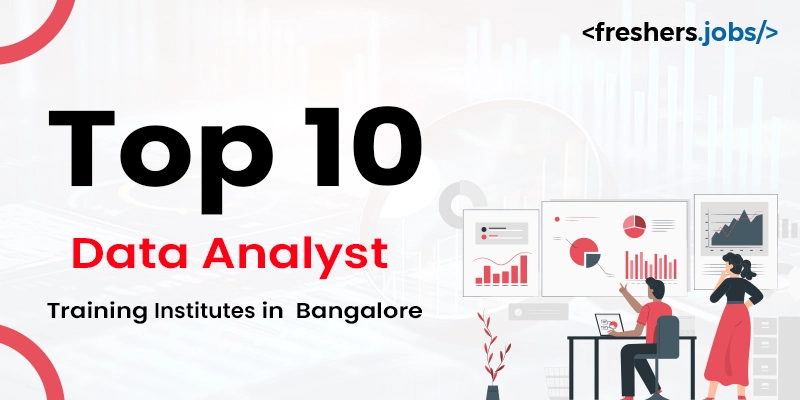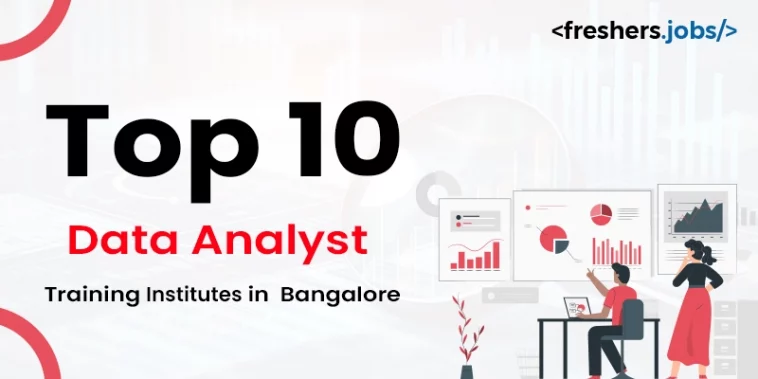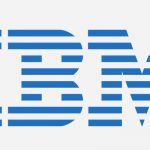Data Analytics, often called the art of interpreting raw data into meaningful insights, has emerged as a game-changer across industries. From influencing strategic business decisions to steering advancements in technology, the demand for skilled data analysts is soaring higher than ever. Customer’s interaction with the technology might result in digital traces. Companies need to make sense of this vast pool of information to enhance their decision-making processes, optimize operations, and understand customer behaviors.

Data Analytics provides the tools and techniques to navigate this data efficiently. The escalating demand for Data Analytics transforms it into a sought-after career path among students. The ability to harness the power of data is not only a valuable skill but a necessity in today’s job market. As businesses prioritize data-driven decision-making, professionals adept at analyzing and interpreting data are in high demand across diverse industries. We will delve into the Top 10 Data Analyst Training Institute in Bangalore.
Listed below are the top 10 Data Analyst Training Institute in Bangalore.
- FITA Academy
- Edureka
- Simplilearn
- Intellipaat
- Besant Technologies
- AnalytixLabs
- 360DigiTMG
- ExcelR
- Datamites Global Training Institute
- StarAgile
FITA Academy
FITA Academy is a reputed institute that provides more than 120 courses that are accessible online and offline. The academy has maintained a leading position in the business for many years, with a focus on providing professional and technical qualifications. With the support of a committed group of more than 1,000 instructors, many with many years of combined expertise, the institute has positively influenced the academic paths of more than 75,000 people. FITA Academy’s commitment to providing top-notch training is demonstrated by the strategic opening of branches in Bangalore, Chennai, Pondicherry, Coimbatore, and Madurai. This growth guarantees that people in many areas will have access to excellent training programs.
Why Choose FITA Academy for Data Analytics Course in Bangalore?
A thorough education is provided by enrolling in FITA Academy’s Data Analytics Course in Bangalore, which enables students to grasp important ideas like Data Blending, Regression Analysis, Hypothesis Testing, and Data Extracts. Participants who complete the course will be proficient in a variety of critical tools and technologies, including Excel, Tableau, R, SAS, Data Visualization, Python, and Power BI. Throughout the course, two real-world capstone projects give students practical experience and let them apply what they’ve learned to real-world situations. After finishing successfully, participants get a useful certification.
FITA Academy distinguishes itself by offering affordable training choices with adjustable batch schedules that suit preferences for weekday and weekend sessions. Beyond the training, support in job placement is offered to ensure a smooth transition into the professional sphere for successful graduates. Choose FITA Academy for Data Analytics Training in Bangalore and unlock the doors to a promising career in this dynamic field.
Tailored Syllabus for Data Analytics Training in Bangalore
The FITA Academy’s Data Analytics Training in Bangalore combines a theoretical grasp of the fundamental ideas of Data Analytics with real-world application. The curriculum guarantees proficiency with important Data Analytics tools and programming languages, such as Tableau, R, SAS, Data Visualization, Python, Power BI, and Excel. With the help of this course, students will be able to create Statistical Predictive models, understand data, and effectively address business difficulties by staying up to date with the newest tools and technology in the market.
Expert Instructors for the Data Analyst Course in Bangalore
Being one of the best institutes for the Data Analyst Course in Bangalore, FITA Academy is well-known for having highly skilled instructors who bring a wealth of practical expertise to the classroom. These dedicated instructors impart theoretical knowledge and share valuable real-world insights, thoroughly preparing students for the dynamic field of Data Analytics.
Sessions for Project Presentations in Data Analytics Course in Bangalore
Project presentation sessions are a part of the Data Analytics Course in Bangalore at FITA Academy, highlighting the value of real-world experience in learning Data Analytics. During these workshops, students can use their newly acquired knowledge in practical situations, gaining invaluable experience and improving their skills.
Placement Sessions in Data Analytics Training in Bangalore
In order to support students in achieving their career objectives, FITA Academy’s comprehensive Data Analytics Training in Bangalore includes free placement sessions. These programs include tips on creating a resume, honing interview strategies, aiding in job placement, and offering career guidance. FITA Academy guarantees a variety of alternatives in the industry and assists with career placements through its vast network of more than 1,500 partner organizations. Students can enter the profession with ease and success because of this extensive network, which provides them with access to profitable career options.
Edureka
A well-known training Institute, Edureka offers a comprehensive Data Analytics course that covers basic to advanced topics. Even if the institute provides a wide range of courses, it’s important to remember that its main concentration is on online training and that its fees could be greater than those of other institutes.
Simplilearn
Simplilearn specializes in delivering Data Analytics Courses to enhance skills and provide valuable industry knowledge. The significant emphasis on virtual learning might restrict face-to-face communication between instructors and students, which could be a drawback for those seeking a more immersive learning environment.
Intellipaat
Intellipaat is committed to providing Data Analytics Classes for learners of all skill levels, and its curriculum is enhanced with useful learning resources. However, the interaction between teachers and students might be affected due to the heavy emphasis on online learning.
Besant Technologies
For students enrolled in Data Analytics classes, Besant Technologies provides both beginning and advanced learners with an enhanced curriculum and helpful learning resources. Still, in comparison to some other schools, its practical training is not as extensive as other institutes.
AnalyticsLabs
AnalyticsLabs provides comprehensive Data Analytics classes with real-time support. Despite these features, it might not be the ideal choice for those looking for a more profound educational experience.
360DigiTMG
360DigiTMG specializes in customized Data Analytics Courses designed to meet industry-specific requirements. However, they may not offer as extensive placement support compared to some other institutes.
ExcelR
ExcelR provides in-depth classes on a variety of topics related to data analytics. However, their placement support may not be as comprehensive as other training institutes.
Datamites Global Training Institute
Datamites offers a substantial Data Analytics course to equip students with the necessary tools. However, it may not be the best fit for students seeking a deeper and more comprehensive education.
StarAgile
StarAgile is recognized for providing specialized Data Analytics Classes tailored to industry-specific needs. However, they may not offer as comprehensive practical training as some other institutes.
These institutes were carefully selected by Freshers Jobs through thorough research, taking into account factors such as brand reputation, student feedback, and a demonstrated history of student accomplishments.
Role of Data Analytics in Today’s Education and Business
Data analytics plays a pivotal role in today’s business landscape, serving as a cornerstone for informed decision-making and strategic planning. Businesses are inundated with vast amounts of data that originate from a multitude of sources, such as customer contacts, transactions, and operational operations. Being able to use and evaluate this data has turned into a competitive advantage. Organizations can use data analytics to find correlations, trends, and insightful information that may be lost in the massive amount of data.
What is Data Analytics?
Data analytics is known as examining and interpreting raw data to extract valuable insights, identify patterns, and make informed business decisions. It involves the use of various techniques, tools, and statistical methods to analyze large sets of data, often with the goal of uncovering trends, correlations, and meaningful information. Data cleansing, data transformation, data modeling, and data visualization are just a few of the many tasks that go under the umbrella of data analytics.
Advantages of Data Analytics
- Informed Decision-Making: Enterprises may make well-informed, fact-based decisions with the help of data analytics. By looking at both past and current data, businesses may enhance their decision-making processes by seeing patterns, trends, and potential risks.
- Operational Efficiency: Businesses may improve efficiency and streamline their processes by analyzing data. This entails streamlining procedures, locating roadblocks, and boosting output all around.
- Competitive Advantage: Businesses that apply data analytics will have a competitive edge. Businesses may stay ahead of the competition and make strategic decisions by analyzing market trends, customer behavior, and rival activity.
- Customer insights: Businesses must comprehend how their customers behave. Data analytics is a useful tool for learning about consumer preferences, buying habits, and satisfaction levels. By using this data, products and services can be better tailored to the needs of the customer.
- Risk management: Identifying and minimizing risks requires the use of data analytics. Organizations can identify patterns in past data and anticipate possible dangers, allowing them to take proactive steps to lessen their impact.
- Personalization: Organizations can employ Data Analytics to improve customer satisfaction by customizing their requirements in terms of goods and services. Customer loyalty and satisfaction can increase when products and services are customized to each individual’s tastes.
- Enhancement of Healthcare: Data Analytics is also employed in Healthcare to forecast disease outbreaks, optimize treatment, and diagnose patients. It enables medical professionals to give better, more individualized care.
- Financial Analysis: Data Analytics is used in the financial industry to do risk assessment, fraud detection, and investment decision-making. Financial firms can use it to examine market patterns and make data-driven investment choices.
- Supply Chain Optimization: Data analytics offers insights into demand forecasts, inventory control, and logistics, which helps to optimize supply chain operations. As a result, the supply chain becomes more efficient and saves money.
- Scientific Research: Data analytics is used to understand data, identify patterns, and test hypotheses. It speeds up discovery and facilitates the inference of important findings from intricate datasets by researchers.
- Smart Cities and IoT: Data analytics is used to examine data from various sensors and devices in the context of smart cities and the Internet of Things. This data is useful for resource management, urban planning, and raising the standard of living for locals as a whole.
Key Components of Data Analytics
Data Collection
- Data Sources: Data sources include social media, databases, spreadsheets, sensor data, logs, and more. The task involves locating and gathering pertinent data from these and other sources.
- Data Extraction: Data Extraction is known as the Retrieval of data from both structured and unstructured sources to prepare for subsequent analysis.
Data Storage
- Databases: Relational, NoSQL, and data warehouse databases are some examples of the types of databases used to store and organize information.
- Data Warehousing: Assembling and preserving large amounts of organized and unorganized data and laying the groundwork for analysis is known as Data Warehousing.
Data Cleaning and Preprocessing
- Data Cleaning: Data cleaning is known as eliminating errors and inconsistencies from the datasets to ensure precision and reliability.
- Data Transformation: Data Transformation is known as converting raw data into an appropriate format for analysis. This includes normalization, encoding, or feature engineering.
Data Exploration and Descriptive Statistics
- Exploratory Data Analysis (EDA): This is known as analyzing and visualizing data to find patterns, trends, and connections.
- Descriptive Statistics: Computation of summary statistics to show the properties of the data, such as mean, median, standard deviation, and percentiles.
Data Modeling
- Statistical Models: Statistical models are used to examine the correlations and forecast outcomes based on availability data.
- Machine Learning Models: Used in Regression analysis, classification, clustering, and predictive modeling.
Data Visualization
- Charts & Graphs: To successfully communicate insights, visual representations such as charts, graphs, and dashboards are developed.
- Data Storytelling: Data storytelling is the process of using reports and visuals to tell the story of conclusions and revelations found in the data.
Data Analysis Tools
- Programming Languages: Using languages like Python, R, or SQL to manipulate and analyze data.
- Analytics Software: Applying specialist tools and applications for data analysis and visualization, such as Tableau, Power BI, or Jupyter Notebooks.
Data Interpretation and Decision-Making
- Interpretation: Drawing important conclusions from the data analysis and turning them into knowledge that can be used.
- Decision Support Systems: Giving decision-makers advice and information to help them make well-informed decisions.
Data Security and Governance
- Data Security: It is known as the implementing measures to ensure data confidentiality, availability, and integrity.
- Governance: Establishing policies and procedures to control access to data and limit it while maintaining legal compliance.
Career Opportunities in Data Analytics
- Data Analyst: This entry-level role involves tasks such as reporting, data cleaning, and analysis. One of the responsibilities is to work with datasets to derive insightful information. The role requires working with datasets to extract valuable information, and proficiency in tools like Excel and SQL, along with basic data analysis skills.
- Business Intelligence Analyst: These professionals create reports, examine corporate data, and provide insights to support decision-making. It is necessary to be proficient in basic statistical analysis, SQL, and data visualization software (like Tableau and Power BI).
- Research Assistant (Data): The role of the Research Assistant is to support the gathering, analyzing, and interpreting of data. Knowledge of study methods, data gathering strategies, and fundamental statistical analysis is necessary.
- Data Scientist: Data Scientists will use cutting-edge machine learning and statistical methods to examine large, complicated datasets and produce insights that can be put to use. They are proficient in Programming (in Python and R), machine learning, data modeling, and statistical analysis.
- Business Analyst (Data): A Business Analyst will bridge the gap between IT and business by analyzing data and providing insights to improve business processes. Skills required include business acumen, data interpretation, SQL, and data visualization.
- Data Engineer: A Data Engineer will create, develop, and oversee databases, processing systems, and data architecture. They will be proficient in ETL (Extract, Transform, Load) procedures, database management (such as SQL and NoSQL), and programming is essential.
- Senior Data Scientist: A Senior Data Scientist will oversee intricate data science projects, create and apply machine learning models, and offer tactical advice. They need skills like advanced machine learning, deep learning, leadership, and strategic thinking.
- Data Architects: A data architect will plan and oversee the organization’s overall data architecture to ensure data security and integrity. They are skilled in architecture planning, data modeling, database design, and leadership.
- Director/Head of Analytics: A Director/Head of Analytics will set the strategic direction and make sure that it is in line with company objectives while supervising the entire analytics department. The necessary skills are substantial analytics experience, great business acumen, strategic planning, and leadership.
- Specialized Roles: A professional in a specialized role will apply their knowledge of data analytics to certain industries or fields, highlighting the advantages and difficulties unique to that industry. Industry experience, data analytic skills, and domain-specific knowledge are all prerequisites. Among the roles are those of marketing and healthcare data analysts.
- Machine Learning Engineer: With software developers and data scientists, machine learning engineers will create and implement machine learning models. Proficiency in machine learning, programming, and model deployment is required.
- AI Ethicist: An AI ethicist will talk about possible biases and ethical issues in data-driven and AI decision-making. They require knowledge of ethics, a foundation in law, and comprehension of the consequences of AI and data.
The rapid growth of digital data has brought a consistent change in the business landscape by forcing companies to recognize the critical role that data analytics plays in supporting well-informed decision-making. One of the vital components of data-driven strategies is Analytics because it is used to identify essential patterns and trends in large datasets. It is also a vital aspect of improving resource optimization. We will delve into the Top 10 Data Analyst Training Institute in Bangalore.




